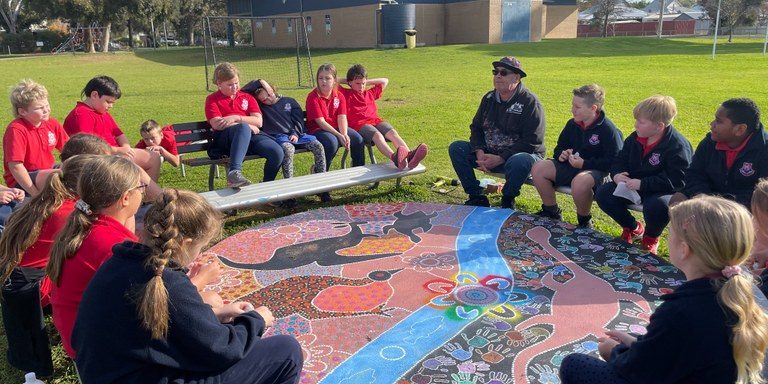As a leader in the community, Murrumbidgee Landcare is facilitating collaborative approaches to working with schools to provide students with lifelong learning on living sustainably, preserving our beautiful environment, valuing and conserving water , understanding how to deal with and manage weeds, and respecting the importance of biodiversity and Aboriginal culture. Our vision is to make a positive impact on the environment through awareness and education and to re-connect people to nature and each other by bringing the environment back into our everyday lives.
Murrumbidgee Landcare worked with students from Hay Preschool and Booligal, Rankin Springs, and St Mary’s Hay Public Schools in the development of Bush Tucker and Native gardens at their schools. The students planned and designed their gardens and learned about native biodiversity, cultural heritage, and gardening utilising endemic plant species. They researched native plants and their Aboriginal use, collected and germinated native seeds, examined minibeasts and soil, and studied native animals and biodiversity.
Students had the opportunity to build their gardens, planting trees, shrubs, and groundcovers while learning about water conservation and the importance of planting endemic species. These projects promoted ownership of the gardens through the participants’ hard work, which in turn motivates students to continue to use and care for their gardens. Using native plants, particularly those which are of significance in Wiradjuri culture, the gardens are also a cultural educational tool for the future.
Murrumbidgee Landcare also worked with Hay and Booligal Public Schools to create cultural learning spaces with yarning circles at the centre. Connected by sitting around the yarning circles, students can come together to learn, talk and share ideas as equals in a safe place without any judgment. These projects provided a way for Aboriginal artists and organisations to connect with the wider community, introduce art and culture to school students, and provide ongoing reflection about the relationships between Aboriginal and non-Aboriginal people.







